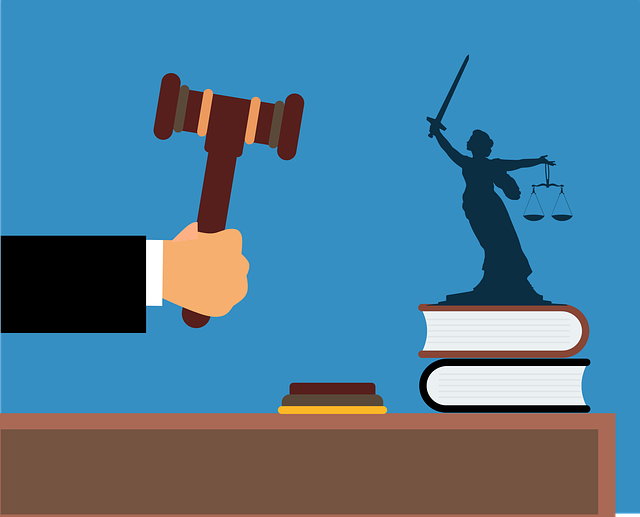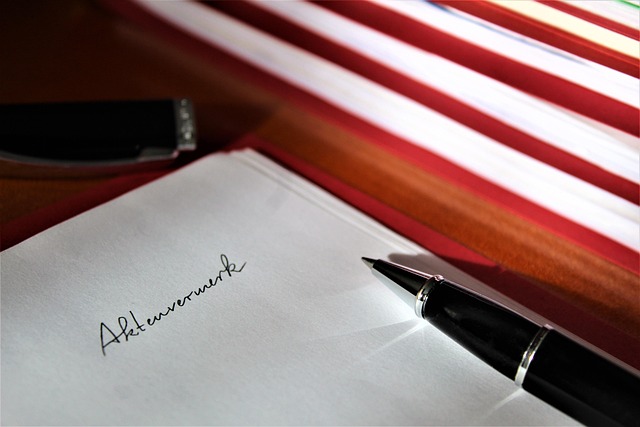Whistleblower Protection Lawsuits play a vital role in public interest and accountability, but they face complex legal landscapes with contrasting burdens of proof between civil and criminal cases. In civil actions, whistleblowers must prove their claims by a preponderance of evidence, while criminal trials demand the higher standard of beyond a reasonable doubt. This difference significantly impacts strategies for both whistleblowers and employers, affecting outcomes from monetary damages to potential jail time. Mastering these nuances is crucial for navigating high-stakes cases successfully.
“Whistleblower Protection Lawsuits: Uncovering the Legal Landscape and Strategies
In today’s complex legal arena, whistleblower protection lawsuits are a crucial aspect of holding organizations accountable. This comprehensive guide explores the intricate world of these cases, focusing on the distinctions between civil and criminal burdens of proof. We delve into the key differences that shape outcomes, impact whistleblowers and employers alike, and provide valuable insights for navigating these challenging suits. Understanding these nuances is essential for both parties to ensure fair and effective legal processes.”
- Understanding Whistleblower Protection Lawsuits: A Comprehensive Overview
- The Legal Framework: Civil vs. Criminal Burden of Proof
- Key Differences in Proof Requirements for Whistleblower Cases
- Implications for Whistleblowers and Employers
- Strategies and Best Practices for Navigating These Complex Suits
Understanding Whistleblower Protection Lawsuits: A Comprehensive Overview

Whistleblower Protection Lawsuits are legal actions taken by individuals who expose illegal or unethical activities within their organizations. These lawsuits play a crucial role in upholding public interest and ensuring accountability. Understanding the intricacies of such cases is essential, especially when navigating the differences between civil and criminal burdens of proof. In civil lawsuits, the onus is on the whistleblower to prove their claims by a preponderance of evidence, which means they must show that it’s more likely than not that the alleged wrongdoings occurred. This standard is generally easier to meet compared to the criminal burden of ‘beyond a reasonable doubt’, required in criminal trials.
Across the country, winning challenging defense verdicts in whistleblower protection lawsuits has become a significant focus for both corporate and individual clients. The ability to distinguish between legitimate whistleblowing and potential retaliation claims is key to mounting a successful defense. This strategic approach ensures that companies can protect themselves from baseless accusations while also fostering an environment where employees feel safe to report potential misconduct, ultimately contributing to stronger corporate governance and ethical practices.
The Legal Framework: Civil vs. Criminal Burden of Proof

The legal framework governing whistleblower protection lawsuits differentiates between civil and criminal proceedings, each with distinct burdens of proof. In civil cases, the onus is on the plaintiff to prove their claims by a preponderance of evidence. This means they must show that the defendant’s actions were more likely than not to have violated the law. This standard allows for a broader range of evidence and interpretations, focusing on the fact finder’s judgment. Conversely, in criminal cases, the prosecution bears the higher burden of proving guilt beyond a reasonable doubt. This stricter standard requires compelling evidence and eliminates any reasonable alternative explanations, ensuring a more definitive verdict.
Understanding these differences is crucial for both whistleblowers and white-collar defense attorneys throughout all stages of the investigative and enforcement process. While a civil judgment may result in monetary damages, a criminal conviction can lead to severe penalties, including jail time and a permanent criminal record. Thus, navigating the nuances of burden of proof is essential to achieving a favorable outcome, potentially leading to the complete dismissal of all charges.
Key Differences in Proof Requirements for Whistleblower Cases

When comparing whistleblower protection lawsuits to other types of legal cases, one key distinction lies in the proof requirements, particularly between civil and criminal proceedings. In criminal cases, the burden of proof rests heavily on the prosecution, requiring them to establish guilt beyond a reasonable doubt. This standard is stringent, demanding strong and compelling evidence. Conversely, in civil whistleblower suits, the plaintiff typically must prove their case by a preponderance of evidence. Although still demanding, this standard allows for a broader range of acceptable proof, including circumstantial evidence and expert testimony.
Another notable difference is the potential outcome, especially regarding jury trials. In criminal cases, if the evidence doesn’t meet the high burden of proof, the result can be a complete dismissal of all charges. Civil lawsuits, however, may lead to monetary damages or injunctive relief for successful whistleblowers, offering a different form of justice and accountability for corporate and individual clients alike.
Implications for Whistleblowers and Employers

Whistleblower protection lawsuits have far-reaching implications for both whistleblowers and employers. For whistleblowers, navigating the legal system can be a daunting task, especially when considering the differences between civil and criminal burdens of proof. In high-stakes cases, where individuals come forward with serious allegations, the stakes are incredibly high. Winning challenging defense verdicts requires robust evidence and a compelling argument that the whistleblower’s actions were not malicious but rather in the public interest.
Employers, on the other hand, face significant risks when accused of misconduct. A complete dismissal of all charges is not always guaranteed, even in cases where the allegations may be lacking substantial proof. This creates an environment where employers must carefully consider their policies and practices to avoid potential legal repercussions. Ensuring compliance with whistleblower protection laws becomes paramount to mitigate the risk of costly lawsuits and damage to their reputation.
Strategies and Best Practices for Navigating These Complex Suits

Navigating whistleblower protection lawsuits requires a strategic approach due to their complexity. One key aspect is understanding the distinction between civil and criminal burdens of proof. In civil cases, the standard is typically lower, requiring plaintiffs to prove their claims by a preponderance of evidence, while in criminal proceedings, prosecutors must convince a jury beyond a reasonable doubt. This difference is crucial as it influences the legal strategies employed.
For successful navigation, firms should focus on developing robust fact-finding and investigation techniques. Given the sensitive nature of such cases, ensuring confidentiality and handling sensitive data discreetly is paramount. Additionally, building a strong case involves meticulous documentation and evidence collection. An unprecedented track record in achieving extraordinary results in white-collar and economic crimes cases can significantly enhance a firm’s reputation and client confidence.
Whistleblower Protection Lawsuits are complex legal battles that require careful navigation. Understanding the nuances, especially the differences between civil and criminal burdens of proof, is crucial for both whistleblowers seeking justice and employers aiming to protect their reputations. By familiarizing themselves with key implications and adopting best practices, individuals and organizations can effectively manage these suits, ensuring fairness and promoting ethical conduct in the workplace.






